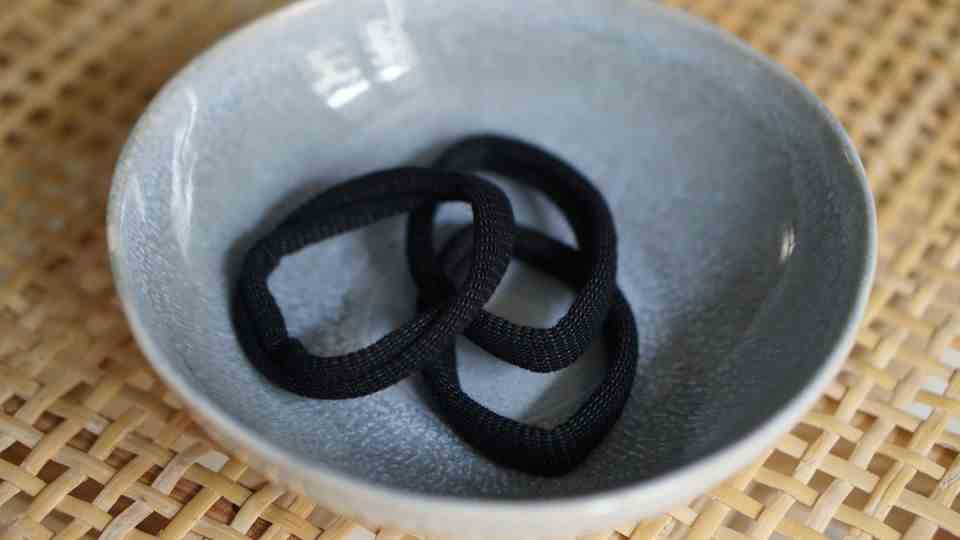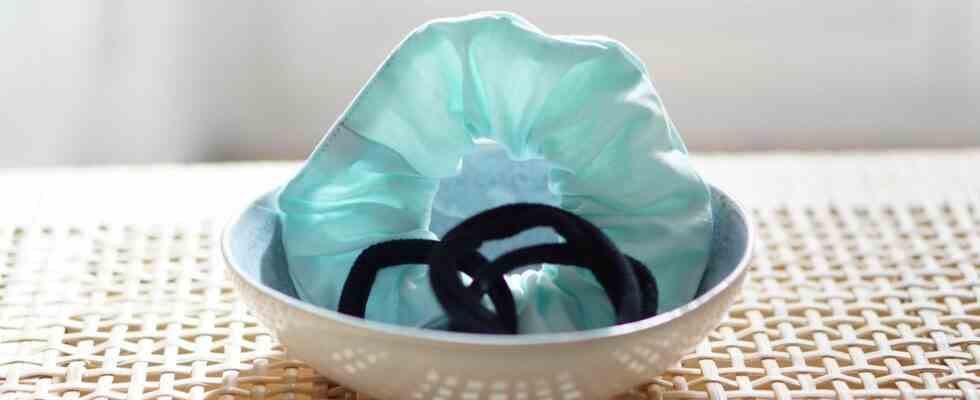test
“THE DEN OF THE LIONS”
Hair ties made from renewable raw materials: Fairhair from DHDL in an everyday test
People with longer hair have certainly used hair ties in their lives. The practical accessories keep the head of hair in position or hide annoying hair from view. On today’s DHDL show, the founders of Fairhair present a sustainable version. star took a closer look at the hair ties.
table of contents
Do you know the phenomenon? Hair ties are disappearing from the scene just as quickly as socks. Out of my hair, out of my mind. Once you have discarded them, you often forget where — and new ones are quickly bought. Why is that? It could be the cheap price and constant availability of the accessory. If you can’t find the old one, you can easily pick up the new one at the nearest drugstore. The founders of “Fairhair” offer a sustainable alternative in today’s episode of “The Lion’s Den”. This reveals what is different about the hair ties and whether it is worth buying star-Test.
That’s behind “Fairhair”
In today’s episode, the founders Fabian Frei (33) and Wolfgang Schimpfle (32) present their sustainable hair tie called “fair hair” (now renamed “Fairtye”). It is produced in Germany and consists of organic cotton and natural rubber. The hair tie does not use plastic and is said to be up to three times stretchier. It could also be gentler on the hair, as there are no predetermined breaking points such as glue points, metal clips or seams that promote hair breakage.

So far there are from “fair hair” (now “Fairtye”) scrunchies in various colors as well as hair ties.
“Fairhair” from DHDL in the test
How do you test hair ties? The small accessories don’t have to be able to do much. They should hold the hair together and not come loose from the hair on their own. They must not cause hair breakage either. The look remains a matter of personal taste.
So far so good. A scrunchie (in German: hair tie) and a set of 3 black hair ties were available for the test. The former is a matter of taste, some like the voluminous version of a hair tie and others want the accessory to remain unobtrusive. In the test, both the look and feel of the scrunchies were convincing. It has a delicate mint tone and feels high quality. It smells neutral and not chemical, stretches well and is easy to wrap in your hair for braids and buns. For the test, the scrunchie is supposed to hold the hair together in a bun at night. It works and the bun is still in place in the morning. The accessory is definitely also suitable for spring and summer, because it is a beautiful eye-catcher with its pastel color and goes well with light nuances.
The black ponytails are allowed to show for the test whether they hold the hair tight enough during a visit to the gym without annoying strands of hair falling in the face. The braid stays put on treadmills, cross trainers and spinning bikes. There is nothing wrong with the durability. It is unclear how long the hair bands from “Fairhair” will retain their shape and color. A tip from the manufacturer is to boil the worn-out specimens so that they regain their old shape.
“Fairhair” in the test: conclusion
Sustainability is no longer a trend, it is lived practice. Therefore, the founders of Fairhair hit the nerve of today. the hair ties have a high-quality look and feel. However, the accessories only become sustainable if the wearer does not treat them as disposable products. Once hair ties are out of your hair, you tend to throw them away and forget where they were last. Using renewable raw materials for the production of hair ties is therefore only half the battle. If consumers reuse these products sustainably and do not keep buying more, the circle closes. A set of 4 scrunchies currently (as of April 4) costs 18.99 euros. That’s almost five euros a piece. In contrast to cheap fas fashion accessories, the price should also ensure that the hair ties are not lost.
Can founders Fabian Frei and Wolfgang Schimpfle convince the lions with their “Fairhair” idea? On the table tonight are 250,000 euros for ten percent of the company shares. You can see how the pitch turns out at 8:15 p.m. on VOX.
You might also be interested in:
This article contains so-called affiliate links. There is more information here.


